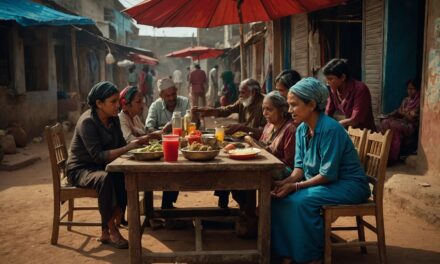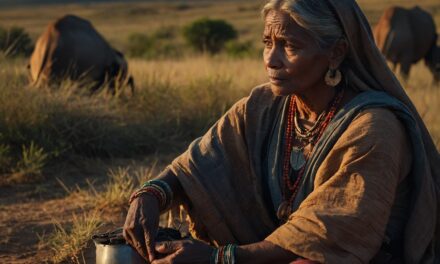Festivals have long been recognized as a powerful way to celebrate diversity and promote cultural exchange. These vibrant events bring people from different backgrounds together, allowing them to share their traditions, customs, and values. In doing so, festivals play a crucial role in preserving and promoting cultural heritage, ensuring that these rich traditions are passed down from one generation to the next.
Key Takeaways
- Global festivals celebrate diversity and promote unity and harmony.
- Festivals have cultural significance across the world and celebrate religion, music, art, food, sports, and nature.
- Festivals face challenges in the future, but also offer opportunities for growth and innovation.
- Embracing diversity through global festivals is important for promoting understanding and acceptance.
- Top festivals celebrated across the world showcase the beauty and richness of different cultures.
Cultural Significance of Festivals Across the World
Festivals hold immense cultural significance in various parts of the world. They serve as a reflection of the values and beliefs of a community, providing a platform for people to express their identity and showcase their unique cultural practices. For example, the Chinese New Year is celebrated with great enthusiasm across the globe, symbolizing the importance of family and community ties in Chinese culture. Similarly, Diwali, the festival of lights celebrated by Hindus, signifies the triumph of light over darkness and good over evil.
The Role of Festivals in Promoting Unity and Harmony
One of the most remarkable aspects of festivals is their ability to bring people together and promote social cohesion. Regardless of their background or beliefs, individuals come together during festivals to celebrate and enjoy each other’s company. This shared experience fosters a sense of unity and harmony among diverse communities. For instance, the Carnival in Rio de Janeiro is renowned for its extravagant parades and vibrant street parties, where people from all walks of life come together to celebrate life and embrace their differences.
Top Festivals Celebrated Across the World
There are countless festivals celebrated across the world, each with its own unique cultural significance. Here are just a few examples:
1. Holi (India): Known as the festival of colors, Holi celebrates the arrival of spring and the victory of good over evil. Participants throw colored powders at each other, symbolizing unity and joy.
2. Oktoberfest (Germany): This world-famous beer festival attracts millions of visitors each year. It showcases German culture, with traditional music, food, and, of course, plenty of beer.
3. Rio Carnival (Brazil): Considered the biggest carnival in the world, Rio Carnival is a vibrant celebration of music, dance, and costumes. It brings together people from all walks of life to revel in the joyous atmosphere.
Festivals Celebrating Religion and Spirituality
Religion and spirituality play a significant role in many people’s lives, and festivals provide an opportunity to celebrate and honor these beliefs. Festivals such as Eid al-Fitr (celebrated by Muslims), Christmas (celebrated by Christians), and Vesak (celebrated by Buddhists) are just a few examples of how different faiths come together to commemorate important religious events. These festivals not only promote understanding and respect for different faiths but also provide a platform for interfaith dialogue and cooperation.
Festivals Celebrating Music and Art
Music and art have the power to transcend cultural boundaries, and festivals that celebrate these forms of expression promote cross-cultural exchange and appreciation. The Glastonbury Festival in the United Kingdom, for instance, showcases a diverse range of musical genres, attracting artists and attendees from all over the world. Similarly, the Venice Biennale in Italy is a prestigious art festival that brings together artists, curators, and art enthusiasts to celebrate contemporary art on an international stage.
Festivals Celebrating Food and Cuisine
Food is an integral part of any culture, and festivals that celebrate different types of cuisine and culinary traditions provide a platform for people to explore and appreciate diverse food cultures. The Taste of Chicago festival in the United States is a prime example, where visitors can sample dishes from various ethnic backgrounds while enjoying live music performances. These festivals not only tantalize taste buds but also promote understanding and appreciation for different culinary traditions.
Festivals Celebrating Sports and Games
Sports and games have the power to unite people, and festivals that celebrate these activities promote physical activity, healthy competition, and cultural exchange. The Olympic Games, held every four years, bring together athletes from all corners of the globe to compete in various sports disciplines. This global event not only showcases athletic prowess but also fosters a sense of camaraderie and understanding among nations.
Festivals Celebrating Nature and Environment
As our world faces increasing environmental challenges, festivals that celebrate nature and the environment play a crucial role in promoting awareness and conservation efforts. The Cherry Blossom Festival in Japan, for example, celebrates the beauty of cherry blossoms while raising awareness about the need to protect these delicate trees. Similarly, Earth Day festivals held worldwide encourage individuals to take action towards a more sustainable future.
The Future of Global Festivals: Challenges and Opportunities
While global festivals have immense potential to promote diversity and cultural exchange, they also face various challenges. One significant challenge is funding, as organizing large-scale events requires substantial financial resources. Additionally, ensuring the sustainability of festivals is crucial to minimize their environmental impact. However, despite these challenges, there are numerous opportunities for festivals to continue promoting diversity in the future. Technological advancements can enhance accessibility to festivals through live streaming and virtual experiences, allowing people from all over the world to participate.
Embracing Diversity Through Global Festivals
In a world that is becoming increasingly interconnected, embracing diversity and promoting cultural exchange is more important than ever. Global festivals provide a platform for people from different backgrounds to come together, celebrate their differences, and build bridges of understanding. By showcasing diverse traditions, customs, music, art, food, sports, and more, festivals foster unity and harmony among communities worldwide. As we move forward, it is crucial to support and celebrate these festivals, as they play a vital role in creating a more peaceful and harmonious world.
FAQs
What are global festivals?
Global festivals are events that celebrate cultural diversity and traditions from around the world. These festivals showcase different aspects of various cultures, including music, dance, food, and art.
Why are global festivals important?
Global festivals are important because they promote cultural understanding and appreciation. They provide an opportunity for people to learn about different cultures and traditions, and to celebrate diversity.
What are some examples of global festivals?
Some examples of global festivals include the Carnival in Rio de Janeiro, Brazil, the Holi Festival in India, the Chinese New Year celebrations, and the Oktoberfest in Germany.
How do global festivals impact local communities?
Global festivals can have a positive impact on local communities by promoting tourism and boosting the local economy. They also provide an opportunity for local residents to learn about different cultures and traditions.
What is the history of global festivals?
Global festivals have been celebrated for centuries, with many festivals having religious or cultural significance. In recent years, global festivals have become more popular as a way to celebrate diversity and promote cultural understanding.
How can I participate in global festivals?
You can participate in global festivals by attending events in your local area or by travelling to different parts of the world to experience different cultures and traditions. Many global festivals also have online events and activities that you can participate in from anywhere in the world.





